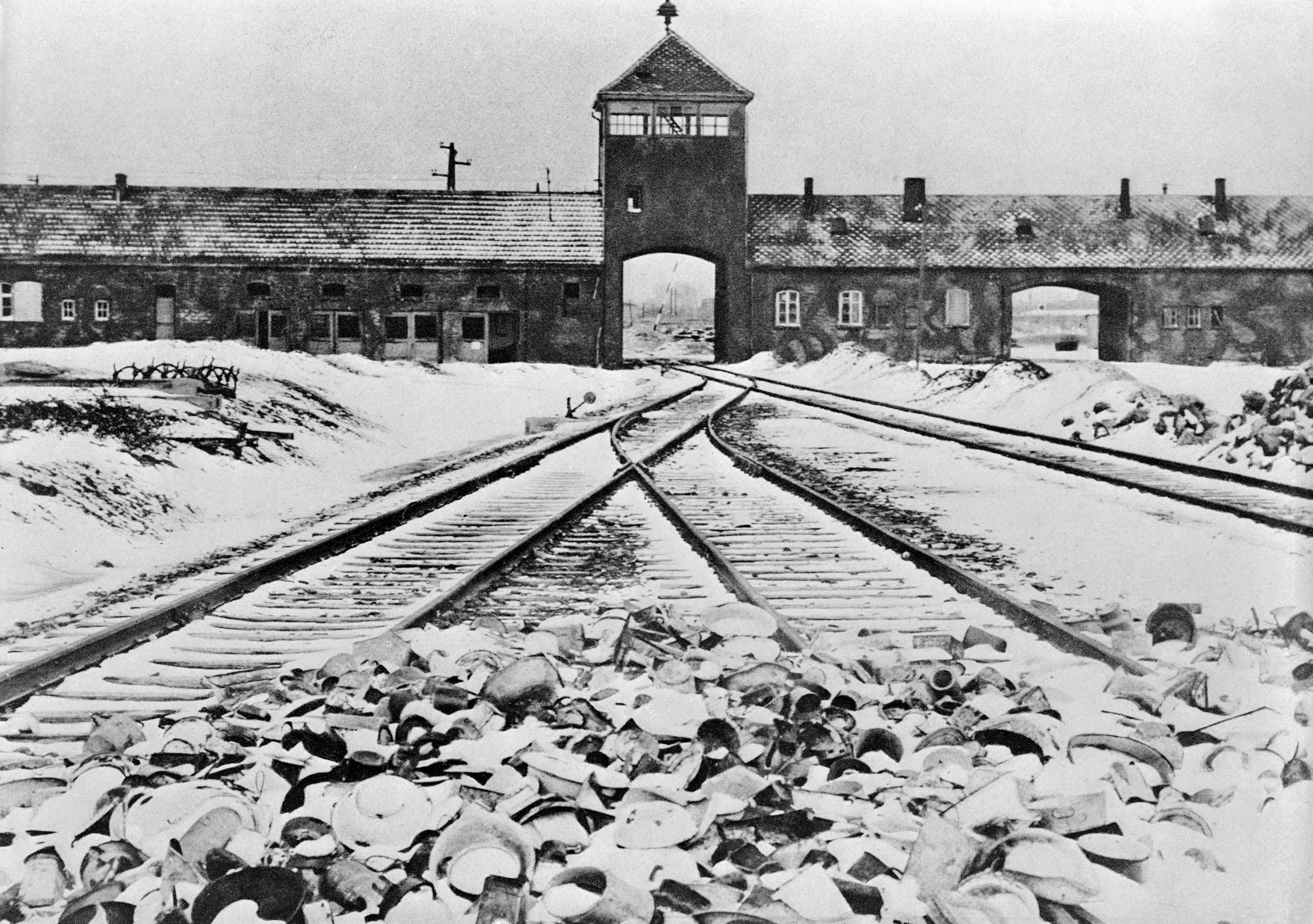Auschwitz remembered: Jack Fairweather’s essential reading on the Holocaust

The author of 2019's Costa Book of the Year Award reflects on the literature that helped him understand one of history's darkest periods.
On the 75th anniversary of Auschwitz’s liberation, it’s hard to imagine a time when the Holocaust did not dominate our thinking about World War II. Yet after the immediate horror that greeted the liberation of the camp, and the other Nazi camps in 1945, the mass murder of Europe’s Jews scarcely lodged in the public’s consciousness. It wasn’t until the early 1960s and the publication of Raul Hilberg’s monumental book, The Destruction of The European Jews, and Hannah Arendt’s dissection of Adolf Eichmann’s trial, that we started coming to terms with mankind’s darkest act.
When I started work on The Volunteer, these were the books I turned to, along with Nikolaus Wachsmann’s more recent study of the Nazi concentration camp system, KL, and Robert Jan van Pelt and Debórah Dwork’s Auschwitz, both of which are brilliant for explaining how Nazi thinking led to mass murder. I also watched Claude Lanzmann's documentary Shoah, which gave victims, perpetrators and bystanders the chance to speak in their own words, in many cases for the first time. It's eight hours long, utterly compulsive, and inspired me in my own research, tracking down witnesses and retracing Witold Pilecki’s footsteps [an underground operative who willingly entered the Auschwitz detention centre to uncover the fate of those being shipped there, the subject of Fairweather’s book].
I also turned to survivor accounts for insights. Elie Wiesel's Night, touched me deeply for its beautifully rendered description of a father and son’s relationship in hell. Filip Müller’s Witness to the Gas Chambers is the horrifying account of one of the Jewish prisoners forced to operate the gas chambers of Auschwitz.
Few perpetrators wrote of their experience after the war. Christopher Browning's Ordinary Men gets at the heart of how people become mass murderers. The Commandant of Auschwitz, Rudolf Höss is one of the few who did write a memoir while on trial for war crimes in Poland after the war. I don't think any single text brought home to me the horror of Auschwitz more than his account.
Polish accounts of the Nazi atrocities are sometimes less well known. Emanuel Ringelblum led a team of Jewish researchers inside the Warsaw ghetto to collect eye witness accounts of the abuse and killing. Ringelblum didn't survive the war, but some of his archives, buried under the rubble of the ghetto, did. Wiesław Kielar's Anus Mundi is rich in pathos and insight.
Of course, Witold Pilecki’s own writings are remarkable. Much remains in Polish but his longest report has been brilliantly translated by Jarek Garlinski. Pilecki wasn’t a trained writer, and Garlinski captures the rawness and urgency of his prose. His works represent an early attempt to understand the Holocaust before the term Holocaust had even been coined.
Because of the circumstances of his life – captured by the Communists at the end of World War II, executed, and his wartime records hidden for half a century – his contribution to our understanding of the Holocaust hasn’t attracted much attention. Yet he was one of the first to grapple with that question I think we have all struggled with since: how was so much evil possible?
The Volunteer: The True Story of the Resistance Hero who Infiltrated Auschwitz by Jack Fairweather is out now.